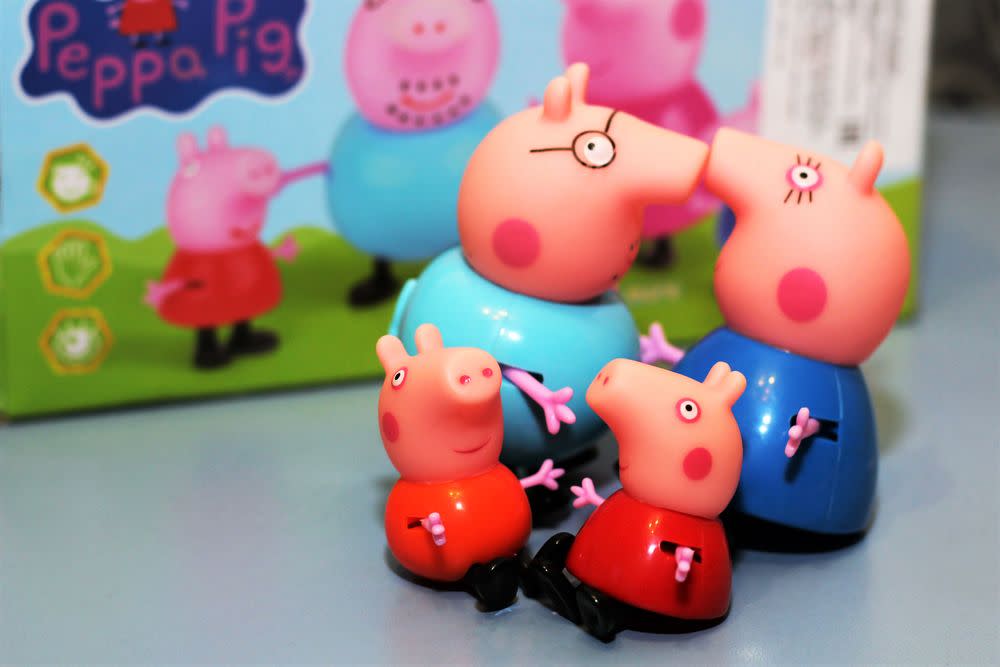Peppa Pig Has Some American Kids Speaking With British Accents

February 13, 2019
If your toddler calls you "Mummy Pig" or "Daddy Pig" and starts speaking in a British accent, don't be alarmed. She's probably been watching Peppa Pig, and you're hearing what one mom has dubbed the Peppa effect.
Janet Manley, a mother of two and Senior Features Editor at Romper, coined the phrase when her 20-month-old daughter started mimicking Peppa's accent following a Peppa Pig-filled flight to Australia. She soon discovered that her wee one wasn't the only child to start pronouncing words like "zebra" and "tomato" with a British accent.
Parents from all across the country have shared their experiences with the Peppa effect on social media.
These little Peppa-isms are adorable, and they're also indicative of how receptive kids are when it comes to language. That's why experts say that the best time to teach a child a second language is actually when they're learning their first one.
"A young child's brain is wired to pick up language naturally," Nancy Rhodes, director of foreign-language education at the Center for Applied Linguistics, in Washington, D.C., previously told Parents.com. "Between birth and puberty, children can learn multiple languages and echo accents easily."
RELATED: 8 Toys That Encourage Talking
In other words, all the kids picking up on Peppa Pig's accent now are just the right age to start learning another language—even if it doesn't involve oinking. Being bilingual—or even just picking up a few terms from across the pond—is a wonderful way to enrich a child's life.
As Karen MacGilvray, director of education at Language Stars, a children's language program based in Chicago, told Parents.com, "Learning early on that an object can be described in more than one way (house, maison, casa), promotes flexibility in thinking and overall creativity."
Keep that in mind the next time your wee Peppa fan breaks into the "baked beans boom" song in the queue!

